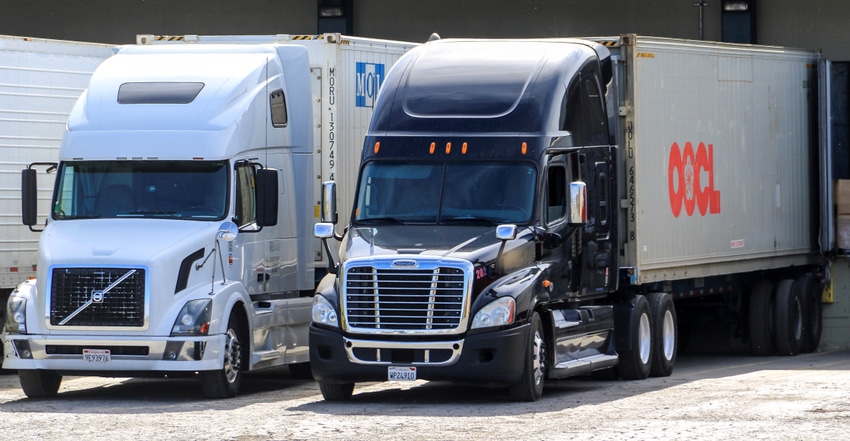
A relatively new business model of selling maritime shipping containers to end-users who need them might be what U.S. agricultural exporters are looking for.
Eveon Containers was founded last year in Europe to improve the efficiencies in container use by selling containers to users needing to ship or store goods. Rather than being told containers do not exist because maritime shipping companies also own the containers needed to ship goods, U.S. agricultural exporters now have the option to buy their own containers through a website that promises transparent pricing and quick availability.
Aad Storm founded Eveon last year to provide transparency to the container market through a web-based model that advertises container prices and offers delivery in a timely manner.
Because the maritime shipping companies also own the containers, they can charge what they will for them, Storm says. They are also able to determine whether containers emptied at U.S. ports or inland are refilled with U.S. exports before being returned to other countries. As with import/export trade between the U.S. and China, maritime companies have favored returning empty containers to Hong Kong where they can be more quickly filled and returned to the U.S. with consumer goods. This is happening because the maritime shippers can rent these containers to Asian exporters for thousands of dollars more than U.S. agricultural exporters can pay to ship agricultural goods overseas.
For agricultural exporters, this has significantly limited market access to Asian markets because it can take several weeks for a container loaded with U.S. food commodities to be emptied, processed, and returned to port with consumer goods.
New model
Storm said the new model allows U.S. agricultural users to own the container with the option to sell it back once it is empty, or possibly lease it to be refilled and returned to the U.S.
The program was rolled out in Germany and just recently expanded to within 200 miles of Newark, N.J. Storm expects to expand the container offerings across the United States in the coming months.
He is working with trucking companies and others who more closely need the containers. As such, he is trying to avoid the speculators and marketers who simply want to buy containers and hold them for resale at a higher price. He sees a great need for containers at the exporter and transportation level.
Currently about one-third of all shipping containers moving across the U.S. are empty. "This is a terrible waste of money and CO2 emissions," he said.
For those uninterested in permanently owning containers, a buy-back program is being considered. For those who do want their own containers, bulk pricing opportunities are available.
The program is limited to dry containers lengths of 20 and 40 feet. Refrigerated containers are not currently offered.
Information on the service can be found online at https://www.eveoncontainers.com/en-us.
About the Author(s)
You May Also Like






